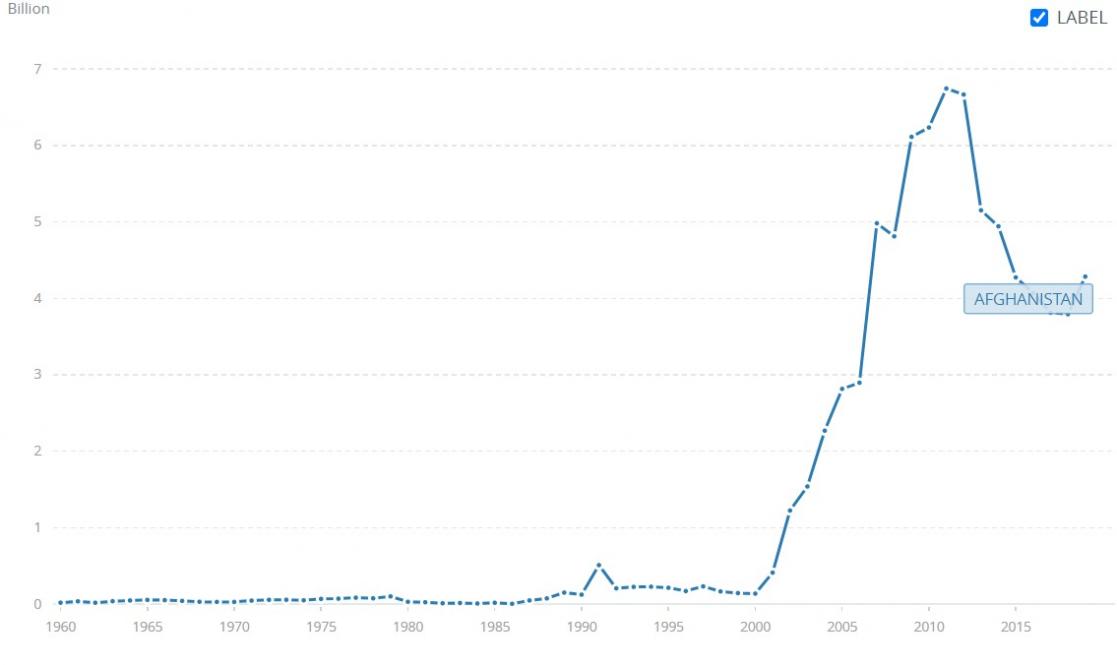Afghanistan: can we avoid a dangerous collapse?

When the Taliban took power in Afghanistan, most attention focused on the evacuation of our citizens and Afghans who felt threatened and wished to leave the country. Thus far, around 120,000 people have been brought to safety, including local staff and people we have trained, like female judges. This operation is far from over, despite the important work of EU member states, NATO allies and our cooperation with Pakistan, Qatar and others. I was able to witness first-hand the on-going efforts when visiting last Thursday a refugee shelter in Doha.
During my visit to Qatar, I discussed the situation in Afghanistan in all its dimensions with the Emir, the Deputy Prime Minister/Foreign Minister and the National Security Advisor. Their overwhelming view is that we need to engage the Taliban to influence their behaviour and choices. At the moment, the ‘asks’ on the Taliban side seem to revolve around recognition, the release of frozen assets and the lifting of the UN sanctions. To influence the new leaders, we need some form of roadmap, setting out our clear benchmarks and expectations and steps to take.
“We need to have people on the ground in Afghanistan, in addition to our humanitarian workers. The question is not if we should have a minimal EU presence but when and how.”
What is also clear is that we need to have people on the ground in Afghanistan, in addition to our humanitarian workers. So, the question is not if we should have a minimal EU presence on which all member states agree, but when and how. We are working on possible options, taking into account the security situation. We had an exploratory mission by EEAS officials and will now assess the next steps.
There are many signs that the situation in the country is getting worse. For instance, we have seen the formation of an interim government that is neither inclusive nor representative. And we have reports that women and girls are excluded from schools and universities, which goes against initial assurances from the Taliban. As the Qatari FM said during our press conference, the behaviour of the Taliban on the exclusion of girls from education has been very disappointing. As the graph below shows, the education of girls has been one of the greatest achievements of the past 20 years, which should not be lost.
Primary school enrolment, female (% gross)

Source: World Bank
The economic situation is dire, which risks worsening the unfolding humanitarian crisis. Afghanistan is one of the poorest countries in the world, with more than one-third of the population living on less than US $2 a day. For years, it has been heavily dependent on foreign aid: in 2020, international assistance accounted for 43% of the country's GDP and 75% of salaries paid in the civil service came from foreign aid. In particular, aid was used to finance a trade deficit of around 30% of GDP. Afghanistan has to import almost all industrial products, all fossil fuels and a large part of the wheat that is necessary to feed a country that is far from self-sufficient and that has been severely affected by droughts.
Net official development assistance and official aid received (current US$)

Source: World Bank
Since the Taliban took power, the EU has decided to increase humanitarian aid from €57 million to €200 million and together with our member states we have pledged €677 million to help the millions of Afghans that are suffering.
“We have increased our humanitarian aid, but, at the same time, we have stopped our development assistance.”
But, at the same time, we have stopped our development assistance, as have our member states and like-minded partners. In addition, the IMF and the World Bank have for now suspended Afghanistan's access to their programmes because of the uncertain legitimacy of the new Afghan government. Moreover, the new authorities do not have access to $9 billion held in frozen assets in central bank reserves, which are mostly deposited outside the country, notably with the US Federal Reserve. Finally, the withdrawal of foreign forces and civilians from the country has deprived many Afghans of important sources of income.
This situation is leading to a rapid devaluation of the Afghan currency and to high inflation: indications are that food prices have risen by at least 50% higher since the Taliban took power. The Afghan banking system remains largely paralysed with people unable to withdraw money from their accounts, while the health system, which was heavily dependent on NGOs and foreign aid, is on the verge of collapse. If the situation continues and with winter approaching, this risks turning into a humanitarian catastrophe. Desperate people may flee the country, creating a mass migratory movement, affecting the neighbouring states that already host more than three million Afghan refugees.
“We have established five benchmarks for resuming relations with the new Afghan government.”
The question is what Europe and our international partners should do. For example, what could we do in areas like health and education? Of course, this depends on the behaviour of the new Afghan regime. For our part, we have established five benchmarks for resuming our relations with the new Afghan government. We will need firm conditionality, in relation to these benchmarks, notably on human rights. This ‘roadmap approach’ matches what Qatar is trying to do as my interlocutors underlined.
Indeed, Qatar plays a crucial role when it comes to Afghanistan. It is home to the Taliban’s political office in Doha, it maintains open contacts with the new authorities, and Qatar Airways is one of the few civilian airlines flying to Kabul.
During my meetings, the Qatari side explained how their contacts with the Taliban were aimed at moderating their behaviour, for instance on girls’ access to education, which of course is not incompatible with Islam. We also discussed the need to assist people who still wish to leave Afghanistan, and I expressed our appreciation for Qatar’s help in this respect and for the efforts to re-open Kabul airport.
“We need to avoid a socio-economic collapse in the coming months. This requires the possibility that the international community assists the Afghan people.”
Most importantly, we agreed on the need to avoid a socio-economic collapse in the coming months. This requires above all that the Taliban take the steps that will enable the international community to assist the Afghan people. With humanitarian flights resuming, female staff of the UN and other agencies need for instance to be able to do their job. I encouraged my Qatari interlocutors to continue to use their privileged contacts with the Taliban so that the worst scenario can be avoided, and I underlined that the EU will continue to work towards this aim.
MORE FROM THE BLOG

“A Window on the World” – by HR/VP Josep Borrell
Blog by Josep Borrell on his activities and European foreign policy. You can also find here interviews, op-eds, selected speeches and videos.
